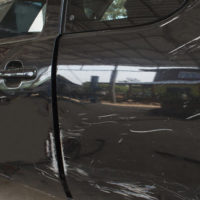Do I Still Need to Prove Damages If the Other Driver Admits Liability?

In a car accident lawsuit, establishing liability may be fairly easy. For instance, when a car speeds through a red light and hits another vehicle legally in the intersection, it does not take a genius to figure out who is responsible. But even in personal injury cases where the defendant admits liability, the plaintiff must still present evidence to establish his or her damages. An admission of liability, in other words, is not a blank check.
TN Court Orders New Hearing on “Loss of Earning Capacity” Claim
Different types of damages may require different kinds of proof. Here is an illustration from a recent case from Davidson County. The plaintiff here was in a side-impact (or T-bone) accident caused by an employee of the defendant. The defendant conceded liability, so only the issue of damages was tried before a judge sitting without a jury.
The plaintiff sustained injuries to her back and leg in the accident. Over the next few months, she required extensive medical treatment and physical therapy as a result of these injuries. At trial, the plaintiff produced medical bills of more than $13,000. Under Tennessee law, plaintiffs may recover “reasonable and necessary” medical expenses related to the accident. Here, although the judge disallowed one medical charge as “not medically necessary,” he awarded the plaintiff approximately $11,000 for her past medical expenses.
On appeal, the Tennessee Court of Appeals affirmed this award. The appeals court also upheld damages for past “past pain and suffering,” “permanent impairment,” “past ability to enjoy life,” “loss of ability to enjoy life in the future,” and “lost wages.” Where the Court of Appeals disagreed with the trial judge was his award of damages for “future pain and suffering” and “loss of earning capacity.”
Earning capacity refers to what a person is capable of making over the remainder of their working lifetime, taking into account factors such as age, health, experience, training, and employment record. Under Tennessee law, loss of future earning capacity must be based on “comparing what the person would have been capable of earning but for the injury” caused by the defendant’s negligence. The burden is on the plaintiff to show that she suffered an “impairment” to her earning capacity.
The plaintiff in this case is a hairdresser. At trial, she testified that she used to work 40 hours per week prior to the accident, but only about 30 to 32 hours afterwards. The judge credited her with a “loss of 8 hours per week,” and based on the assumption that she will work until the age of 65, she will have lost about $170,000.
But as the Court of Appeals explained, the judge was not supposed to calculate “lost earnings.” Rather, the law required findings regarding whether the plaintiff’s accident-related impairments reduced her earning capacity. The appeals court therefore returned the case to the trial judge for a new determination.
In addition, the Court of Appeals rejected the trial judge’s award of $50,000 for “future pain and suffering.” While damages for past pain and suffering were justified by the plaintiff’s medical records, the plaintiff’s own doctor testified that she had no “permanent injury” that would produce any such future pain.
Have You Been Injured in a Car Accident?
If you have been in a car accident, it is important to document any evidence of your injuries and any treatment you received. Every little bit of information can help if it becomes necessary to sue the negligent party in court. You should also speak with a qualified Tennessee personal injury lawyer as soon as possible. Contact the offices of Fox, Farley, Willis & Burnette, Attorneys at Law, in Clinton or Knoxville to speak with one of our lawyers today.
Source:
tncourts.gov/sites/default/files/hyde.jonelle.opn_.pdf
